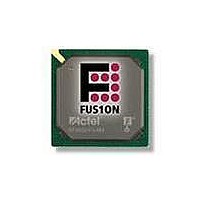AFS600-FGG256 Actel, AFS600-FGG256 Datasheet - Page 25

AFS600-FGG256
Manufacturer Part Number
AFS600-FGG256
Description
FPGA - Field Programmable Gate Array 600K System Gates
Manufacturer
Actel
Datasheet
1.AFS600-PQG208.pdf
(330 pages)
Specifications of AFS600-FGG256
Processor Series
AFS600
Core
IP Core
Maximum Operating Frequency
1098.9 MHz
Number Of Programmable I/os
119
Data Ram Size
110592
Supply Voltage (max)
1.575 V
Maximum Operating Temperature
+ 70 C
Minimum Operating Temperature
0 C
Development Tools By Supplier
AFS-Eval-Kit, AFS-BRD600, FlashPro 3, FlashPro Lite, Silicon-Explorer II, Silicon-Sculptor 3, SI-EX-TCA
Mounting Style
SMD/SMT
Supply Voltage (min)
1.425 V
Number Of Gates
600 K
Package / Case
FPBGA-256
Lead Free Status / RoHS Status
Lead free / RoHS Compliant
Available stocks
Company
Part Number
Manufacturer
Quantity
Price
Company:
Part Number:
AFS600-FGG256
Manufacturer:
Actel
Quantity:
135
Part Number:
AFS600-FGG256
Manufacturer:
ACTEL/爱特
Quantity:
20 000
Company:
Part Number:
AFS600-FGG256I
Manufacturer:
Microsemi SoC
Quantity:
10 000
Company:
Part Number:
AFS600-FGG256K
Manufacturer:
Microsemi SoC
Quantity:
10 000
- Current page: 25 of 330
- Download datasheet (13Mb)
Note:
Figure 2-8 • Ultra-Fast Local Lines Connected to the Eight Nearest Neighbors
Input to the core cell for the D-flip-flop set and reset is only available via the VersaNet global network connection.
Routing Architecture
The routing structure of Fusion devices is designed to provide high performance through a flexible four-
level hierarchy of routing resources: ultra-fast local resources; efficient long-line resources; high-speed
very-long-line resources; and the high-performance VersaNet networks.
The ultra-fast local resources are dedicated lines that allow the output of each VersaTile to connect
directly to every input of the eight surrounding VersaTiles
SET/CLR input of a VersaTile configured as a D-flip-flop is driven only by the VersaNet global network.
The efficient long-line resources provide routing for longer distances and higher-fanout connections.
These resources vary in length (spanning one, two, or four VersaTiles), run both vertically and
horizontally, and cover the entire Fusion device
signals onto the efficient long-line resources, which can access every input of every VersaTile. Active
buffers are inserted automatically by routing software to limit loading effects.
The high-speed very-long-line resources, which span the entire device with minimal delay, are used to
route very long or high-fanout nets: length +/–12 VersaTiles in the vertical direction and length +/–16 in
the horizontal direction from a given core VersaTile
devices, like those in ProASIC3 devices, have been enhanced. This provides a significant performance
boost for long-reach signals.
The high-performance VersaNet global networks are low-skew, high-fanout nets that are accessible from
external pins or from internal logic
clocks, reset signals, and other high-fanout nets requiring minimum skew. The VersaNet networks are
implemented as clock trees, and signals can be introduced at any junction. These can be employed
hierarchically, with signals accessing every input on all VersaTiles.
L
L
L
Inputs
L
L
L
(Figure 2-11 on page
Long Lines
R e v i s i o n 1
(Figure 2-9 on page
(Figure 2-10 on page
L
L
L
2-12). These nets are typically used to distribute
(Figure
Ultra-Fast Local Lines
(connects a VersaTile to the
adjacent VersaTile, I/O buffer,
or memory block)
Actel Fusion Family of Mixed Signal FPGAs
2-8). The exception to this is that the
2-10). Each VersaTile can drive
2-11). Very long lines in Fusion
2 -9
Related parts for AFS600-FGG256
Image
Part Number
Description
Manufacturer
Datasheet
Request
R

Part Number:
Description:
AFS600-1FGG256I
Manufacturer:
Actel
Datasheet:

Part Number:
Description:
AFS600-2FGG256I
Manufacturer:
Actel
Datasheet:











